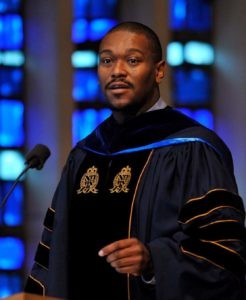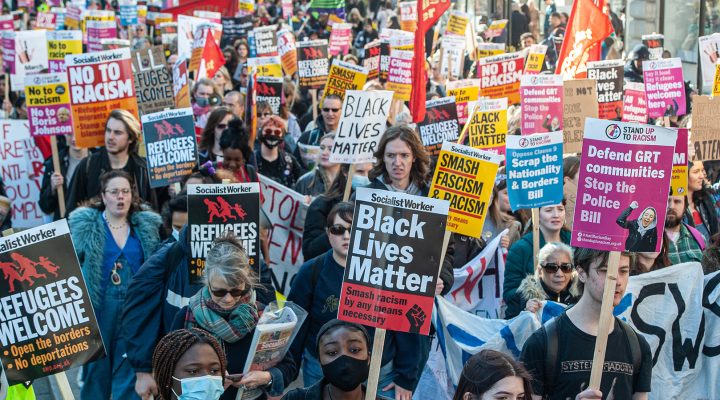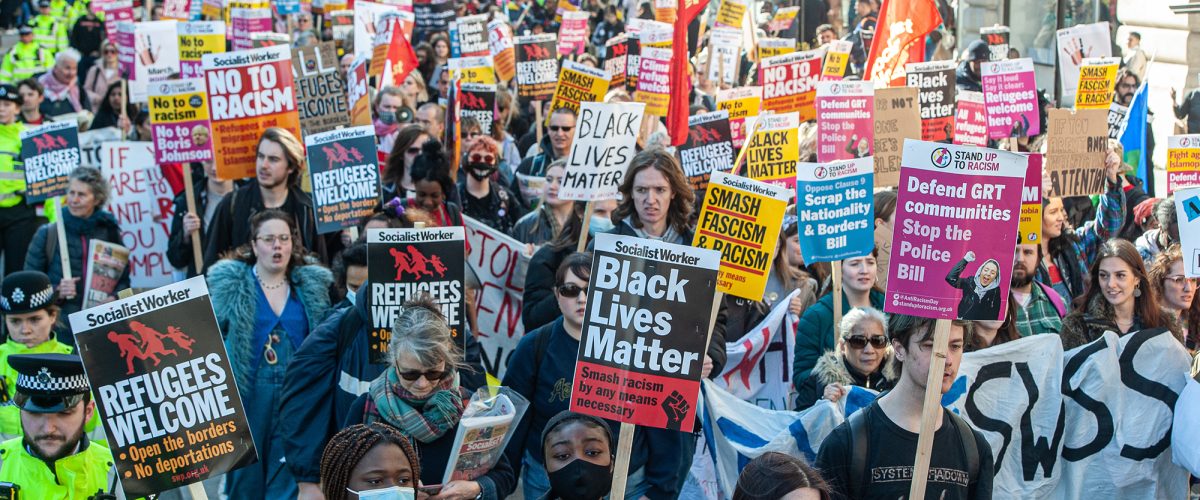The quest for racial justice in the United States needs more white people who hear the concerns of their Black neighbors and respond with concrete actions, a Black church scholar wrote in a New York newspaper.
In an op-ed published June 16 in the East Hampton Star, Lewis Brogdon, director of the Institute for Black Church Studies at Baptist Seminary of Kentucky, applauded the widespread “moral outrage” expressed in response to the killings of Breonna Taylor, Ahmaud Arbery and George Floyd.
“Thousands upon thousands took to the streets to lament what we have become as a nation and insist we do better,” he observed. “To put a finer point on it: They called out our capacity to tolerate injustice, and we are a better nation for it.”
“They called out our capacity to tolerate injustice, and we are a better nation for it.”
Brogdon said “glimpses of a better America” can be seen in the “wake of protests and this latest moment of reckoning.” He emphasized that the impact of the past two years on American life should not be minimized.
More people in the white community have turned a sympathetic ear to the concerns of their Black neighbors, Brogdon said. However, he noted “too many white brothers and sisters lack the courage to go beyond listening,” and that poses a challenge for the future.

Lewis Brogdon
“The path to a more racially just America will require a national commitment to compassion and courage,” he stressed. “Compassion to listen and empathize with African Americans. Courage to speak and take actions that can make a difference.”
While there are many hurdles to overcome, Brogdon cited some encouraging developments in the struggle for racial justice over the past two years.
- White philanthropists increased support to historically Black colleges and universities and to nonprofit organizations that work for African American empowerment.
- Major corporations “funded advertising campaigns that expressed solidarity and gave voice to African American issues and pain.”
- The federal government corrected “an omission in our national history” by declaring Juneteenth a national holiday.
These actions are making a difference, but the work of racial justice is far from finished, Brogdon said. “It is important to recognize these actions, but as the years roll by, we will not see more change unless we commit to building on them.”
Brogdon drew a parallel between the state of race relations in the U.S. and the parable of the Good Samaritan. In the parable, the priest and the Levite saw the need of the injured man but failed to act.
“The same is true for listening,” he insisted. “To listen without a compassionate and courageous response is meaningless. “
The parable’s “story of neighborly love illuminates the deeper meaning of ally work,” he said. “At the end of the day, African American people need good neighbors, ready to listen and act. Without the compassionate and courageous allies, the onslaught of racism continues.”
“African American people need good neighbors, ready to listen and act.”
Brogdon identified some actions white allies could take to contribute to racial justice:
- Stand against the silence and apathy of mainstream white America and challenge extremists in neighborhoods, schools and churches. Some, he warned, seek to derail racial progress through “misinformation,” “dog whistling” and suggesting that “working for racial justice is un-American.”
- Muster the courage to “push back against fellow whites.” He acknowledged this could be risky. He pointed to the “virulent opposition” that greeted whites who opposed slavery and Jim Crow segregation.
- Join coalitions and partnership that work to improve education, health care, economic opportunities, policing and other services in African American communities. A related activity, he said, is to “vote in the interests of your African American neighbors, instead of your own interests.”
“It takes both Cs to build a better America — compassion and courage,” Brogdon said. “Listening is not enough. We need more Good Samaritans doing the right thing, so we do not lose the momentum and meaning of this moment of our national life.”
Brogdon’s article appeared in the East Hampton Star three days before he spoke to an East Hampton Juneteenth celebration, which was sponsored by Calvary Baptist Church, the Anti-Bias Task Force in East Hampton, and the mayor’s office.
Related articles:
Preaching on racial justice was much more difficult without in-person worship, pastors say
If you think racial equity exists in America today, you’re in the minority
Trayvon and Ahmaud: If schools can’t tell their stories, churches must | Opinion by Bill Leonard


